-
 bitcoin
bitcoin $87959.907984 USD
1.34% -
 ethereum
ethereum $2920.497338 USD
3.04% -
 tether
tether $0.999775 USD
0.00% -
 xrp
xrp $2.237324 USD
8.12% -
 bnb
bnb $860.243768 USD
0.90% -
 solana
solana $138.089498 USD
5.43% -
 usd-coin
usd-coin $0.999807 USD
0.01% -
 tron
tron $0.272801 USD
-1.53% -
 dogecoin
dogecoin $0.150904 USD
2.96% -
 cardano
cardano $0.421635 USD
1.97% -
 hyperliquid
hyperliquid $32.152445 USD
2.23% -
 bitcoin-cash
bitcoin-cash $533.301069 USD
-1.94% -
 chainlink
chainlink $12.953417 USD
2.68% -
 unus-sed-leo
unus-sed-leo $9.535951 USD
0.73% -
 zcash
zcash $521.483386 USD
-2.87%
How fast are Bitcoincoin transactions?
Dogecoin transactions typically take 1 to 3 minutes for one confirmation, with 3–6 confirmations ensuring finality in around 3 to 6 minutes due to its 1-minute block time.
Jul 21, 2025 at 07:28 am
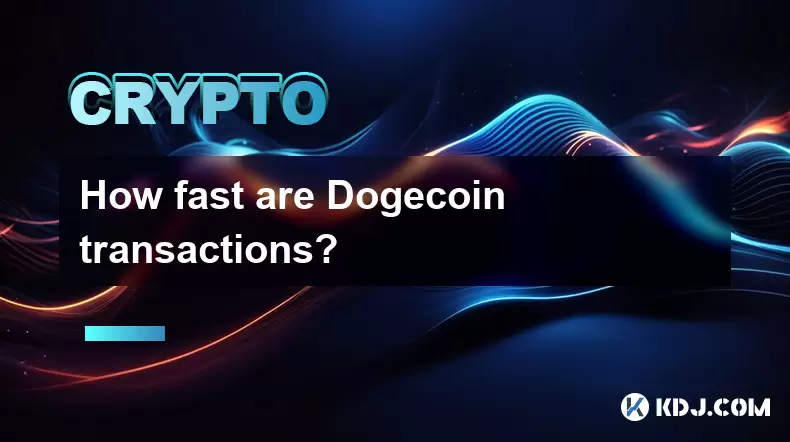
Understanding the Speed of Dogecoin Transactions
Dogecoin, a cryptocurrency that started as a meme, has grown into a widely recognized digital asset. One of the key features users often evaluate when using a cryptocurrency is transaction speed. The speed of Dogecoin transactions is determined by several underlying technical and network factors.
The block time of Dogecoin is approximately 1 minute, which is significantly faster than Bitcoin's 10-minute block time. This means that Dogecoin blocks are mined more frequently, allowing for quicker confirmation of transactions. However, it's important to understand that block time is just one part of the equation.
Factors Influencing Transaction Confirmation Time
Several variables affect how quickly a Dogecoin transaction gets confirmed on the blockchain. These include:
- Network congestion: During periods of high activity, the number of pending transactions increases, which can delay confirmations.
- Transaction fees: Users who pay higher fees typically see their transactions prioritized by miners.
- Number of confirmations required: Most exchanges and services require multiple confirmations before considering a transaction final.
Higher fees generally result in faster processing times, especially when the network is busy. Wallets and exchanges often provide fee estimation tools to help users choose appropriate fees based on current network conditions.
How Many Confirmations Are Needed?
For Dogecoin, the number of confirmations required varies depending on the service or platform receiving the funds. One confirmation means the transaction has been included in a block and added to the blockchain. However, most platforms wait for multiple confirmations to ensure the transaction is secure and not at risk of being reversed.
- 1 confirmation: Suitable for small peer-to-peer transfers.
- 3–6 confirmations: Typically used by exchanges and merchants for medium-sized transactions.
- More than 6 confirmations: Required for high-value or institutional transfers.
Each confirmation adds another layer of security, reducing the risk of a double-spend attack. Given that Dogecoin’s block time is 1 minute, waiting for 6 confirmations would take roughly 6 minutes, which is relatively fast compared to other cryptocurrencies.
Comparing Dogecoin Transaction Speed with Other Cryptocurrencies
When compared to other major cryptocurrencies, Dogecoin's transaction speed is competitive. For instance:
- Bitcoin: ~10 minutes per block.
- Ethereum: ~13–15 seconds per block.
- Litecoin: ~2.5 minutes per block.
- XRP: Near-instant settlement.
While Ethereum has faster block times than Dogecoin, it often experiences higher congestion due to its use in smart contracts and decentralized applications (dApps). In contrast, Dogecoin’s network is less congested, which helps maintain consistent and predictable transaction times.
It's also important to note that Dogecoin uses a Scrypt-based proof-of-work consensus mechanism, which allows for faster mining and transaction processing compared to Bitcoin’s SHA-256 algorithm.
Steps to Speed Up a Dogecoin Transaction
If a Dogecoin transaction is stuck due to low fees or high network demand, there are ways to expedite it:
- Use a Replace-by-Fee (RBF) feature: If your wallet supports RBF, you can replace the pending transaction with a new one that includes a higher fee.
- Accelerate via transaction pools: Some mining pools offer transaction acceleration services where you can submit your transaction hash to get it prioritized.
- Double-spend with higher fee: This method involves sending the same amount again with a much higher fee to incentivize miners to confirm the new transaction first.
RBF support must be enabled at the time of the original transaction, so it's essential to configure your wallet accordingly before sending funds. Not all wallets support this feature, so checking your wallet's documentation is crucial.
Wallet and Exchange Considerations
The wallet or exchange you use can also impact perceived transaction speed. Some platforms may take additional time to process internal transfers before broadcasting the transaction to the blockchain. Additionally:
- Cold wallets require manual confirmation and may introduce slight delays.
- Exchange wallets may batch transactions, affecting how quickly they appear on the blockchain.
- Fee estimation tools vary between platforms, which can lead to inconsistent transaction speeds.
Always ensure that your wallet settings allow for custom fee selection, so you can adjust fees based on current network conditions. This flexibility is key to maintaining fast Dogecoin transaction times.
Frequently Asked Questions
1. Can Dogecoin transactions be reversed?No, once a Dogecoin transaction is confirmed on the blockchain, it cannot be reversed. Users should always double-check recipient addresses before sending funds.
2. Why does my Dogecoin transaction show 'unconfirmed' for hours?This usually happens when the transaction fee is too low or the network is congested. You can attempt to speed it up using methods like RBF or transaction accelerators.
3. How long does it take to send Dogecoin to another wallet?Under normal conditions, a Dogecoin transaction takes 1 to 3 minutes to receive one confirmation. Full finality typically occurs after 3–6 confirmations, taking 3 to 6 minutes.
4. Is Dogecoin suitable for everyday transactions?Yes, Dogecoin’s fast block time and low fees make it a viable option for small, everyday transactions, especially when compared to slower and more expensive blockchains like Bitcoin.
Disclaimer:info@kdj.com
The information provided is not trading advice. kdj.com does not assume any responsibility for any investments made based on the information provided in this article. Cryptocurrencies are highly volatile and it is highly recommended that you invest with caution after thorough research!
If you believe that the content used on this website infringes your copyright, please contact us immediately (info@kdj.com) and we will delete it promptly.
- Trump's Fed Chair Pick: Kevin Warsh Steps Up, Wall Street Watches
- 2026-01-30 22:10:06
- Bitcoin's Digital Gold Dream Tested As Market Shifts And New Cryptocurrencies Catch Fire
- 2026-01-30 22:10:06
- Binance Doubles Down: SAFU Fund Shifts Entirely to Bitcoin, Signaling Deep Conviction
- 2026-01-30 22:05:01
- Chevron's Q4 Results Show EPS Beat Despite Revenue Shortfall, Eyes on Future Growth
- 2026-01-30 22:05:01
- Bitcoin's 2026 Mega Move: Navigating Volatility Towards a New Era
- 2026-01-30 22:00:01
- Cardano (ADA) Price Outlook: Navigating the Trenches of a Potential 2026 Bear Market
- 2026-01-30 22:00:01
Related knowledge
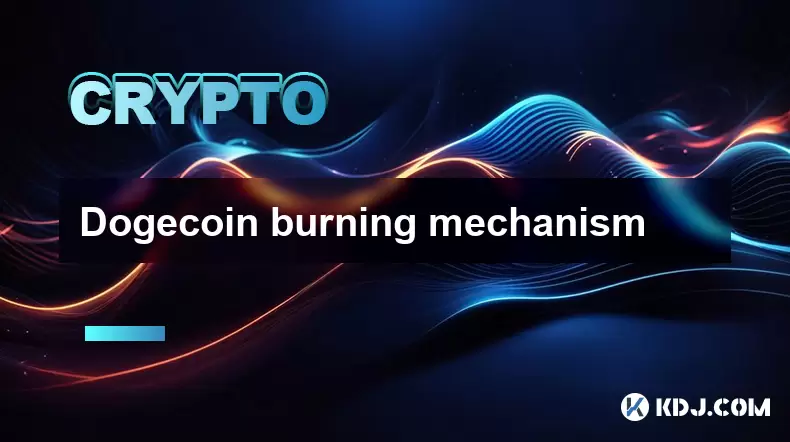
Bitcoincoin burning mechanism
Jul 20,2025 at 09:21pm
What is the Dogecoin burning mechanism?The Dogecoin burning mechanism refers to the process of permanently removing DOGE tokens from circulation by se...

How to earn free Bitcoincoin?
Jul 19,2025 at 10:08pm
What is Dogecoin and Why Earn It?Dogecoin (DOGE) started as a meme-based cryptocurrency in 2013 but has grown into a widely recognized digital asset. ...

Is Coinbase a good wallet for Bitcoincoin?
Jul 19,2025 at 04:42pm
Understanding Coinbase as a Wallet Option for DogecoinWhen considering where to store Dogecoin, Coinbase is often mentioned as a potential option due ...
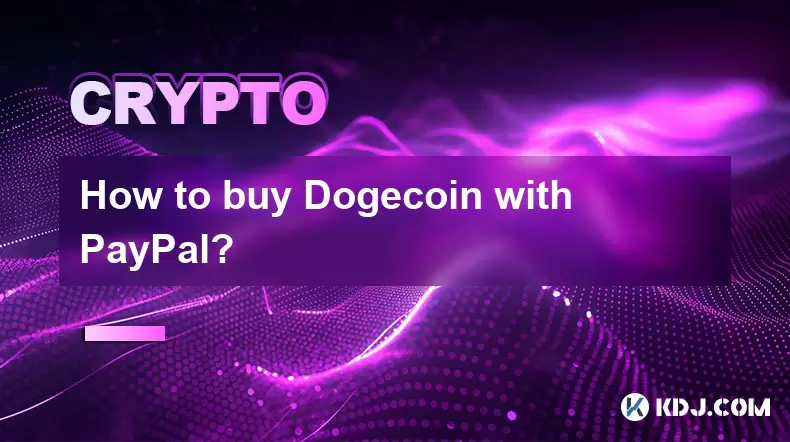
How to buy Bitcoincoin with PayPal?
Jul 23,2025 at 06:57am
Understanding the Basics of Buying DogecoinBefore diving into the process of buying Dogecoin with PayPal, it’s essential to understand what Dogecoin i...
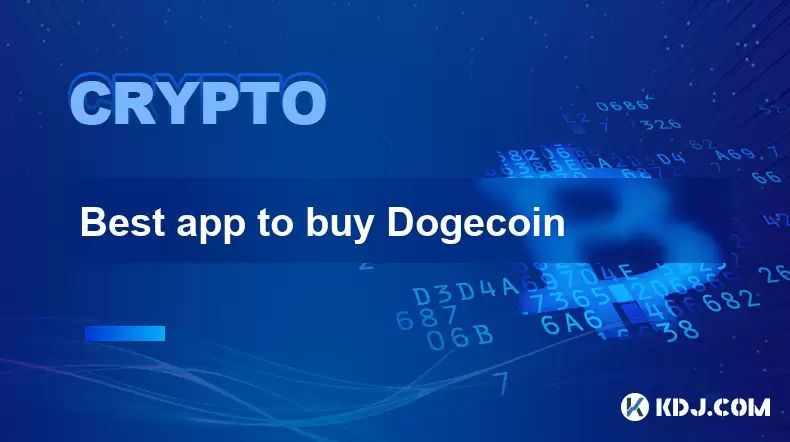
Best app to buy Dogecoin
Jul 23,2025 at 03:08pm
What Is a Cryptocurrency Exchange and How Does It Work?A cryptocurrency exchange is a digital marketplace where users can buy, sell, or trade cryptocu...
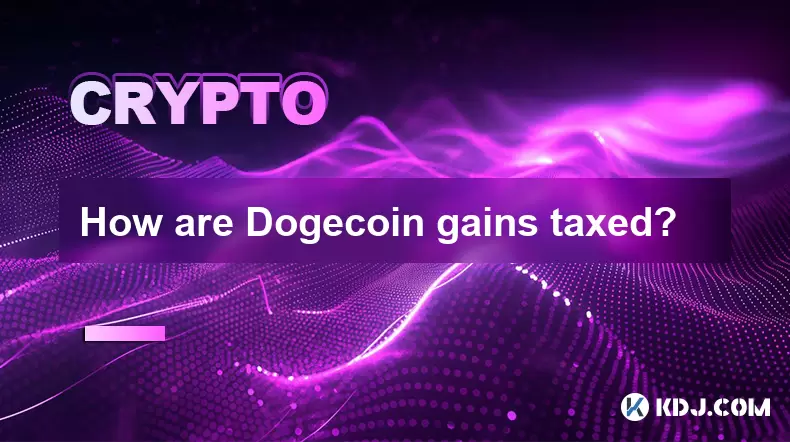
How are Dogecoin gains taxed?
Jul 25,2025 at 07:01am
Understanding the Taxation of Dogecoin GainsWhen it comes to Dogecoin (DOGE), many investors are drawn to its meme-inspired branding and volatile pric...

Bitcoincoin burning mechanism
Jul 20,2025 at 09:21pm
What is the Dogecoin burning mechanism?The Dogecoin burning mechanism refers to the process of permanently removing DOGE tokens from circulation by se...

How to earn free Bitcoincoin?
Jul 19,2025 at 10:08pm
What is Dogecoin and Why Earn It?Dogecoin (DOGE) started as a meme-based cryptocurrency in 2013 but has grown into a widely recognized digital asset. ...

Is Coinbase a good wallet for Bitcoincoin?
Jul 19,2025 at 04:42pm
Understanding Coinbase as a Wallet Option for DogecoinWhen considering where to store Dogecoin, Coinbase is often mentioned as a potential option due ...

How to buy Bitcoincoin with PayPal?
Jul 23,2025 at 06:57am
Understanding the Basics of Buying DogecoinBefore diving into the process of buying Dogecoin with PayPal, it’s essential to understand what Dogecoin i...

Best app to buy Dogecoin
Jul 23,2025 at 03:08pm
What Is a Cryptocurrency Exchange and How Does It Work?A cryptocurrency exchange is a digital marketplace where users can buy, sell, or trade cryptocu...

How are Dogecoin gains taxed?
Jul 25,2025 at 07:01am
Understanding the Taxation of Dogecoin GainsWhen it comes to Dogecoin (DOGE), many investors are drawn to its meme-inspired branding and volatile pric...
See all articles










































































